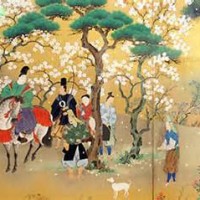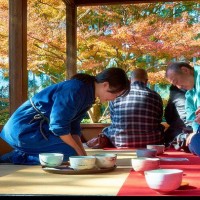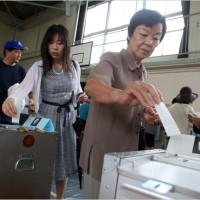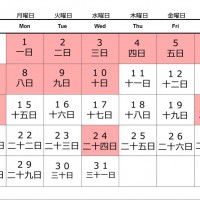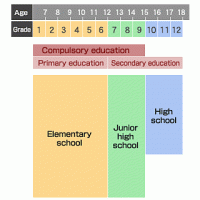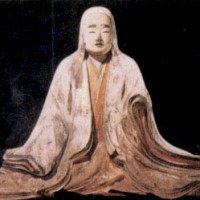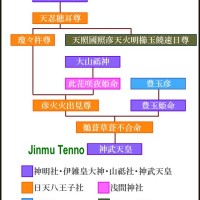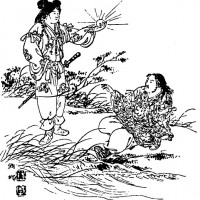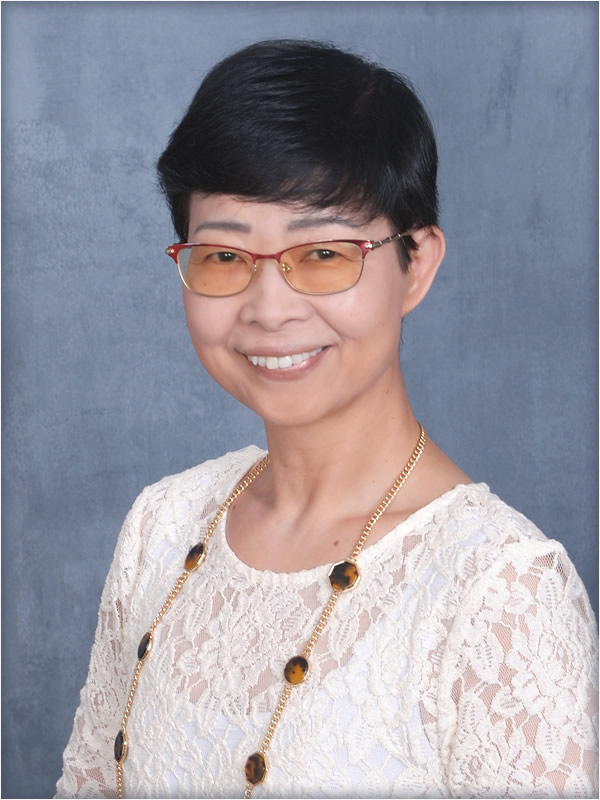Monthly Archives: August 2015
Tuesday: Nihon-no Kotowaza
08/12/2015 blog
Chinmoku-wa Kin [Vocaburary] Chinmoku: Scilence Kin: Gold [Translation] Scilence is golden. [Comment] Who do you think “most unpopular/unwelcome people” in Japan? Yes, “Chatterbox.” So, this proverb is so very true. Scilence is really appreciated in Japan. In the library, you are supposed to keep quiet. No talk! Nada…. At schools or offices, the quieter, the better. Japanese children are so deciplined that they don’t do anything – just keep your mouth shut – while they are doing a particular thing. “No Multi-Task People Needed” – that’s who the Japanese are!
Tuesday: Nihon-no Kotowaza
08/12/2015 blog
Atsusa Samusa-mo Higan-made (Happens on March 20th and September 22nd) [Vocaburary] Atsusa: Heat Samusa: Cold Higan: Equinox (Vernal and Autumnal) [Translation] No heat or cold lasts over the equinox. [Comment] The Japanese appreciated and embraced the transitions of seasons by saying the expression above, instead of complaining about unexpectedly long-lasting cold (Spring) or heat (Autumn). Since time immemorial, they have had full of wit. It is reported in Japan that Japanese Emperor Akihito has not been using air conditioners in his loyal palace in Tokyo, Japan. Emperor Akihito seems to concerve energy and also to have a wish to embrace the lasting heat with the entire nation this summer. He …
Tuesday: Nihon-no Kotowaza
08/12/2015 blog
Noo Aru Taka-wa Tsume-wo Kakusu In Japan, hawks or falcons have been admired and respected because of their beauty and cleverness. When a hawk is used as an example of something, that something is always “GOOD.” No exception. Still, in this proverb, there are some good ones while others NOT. Those good ones with “brain (No)” tend now to show their strong points like a hawk’s sharp knife-like nails. If they show them to others, especially to their preys, they are ending up in starvation. So, they show up quietly and don’t show their “arms.” [Vocaburary] No: brain Taka: hawks or falcons Tsume: nails Kakusu: hide [Translation] A talented person …
Tuesday: Nihon-no Kotowaza
08/12/2015 blog
Expressions Related to “Baka (Fool)” 1) “Baka-to Hasami-wa Tsukaiyoo(-de Kireru).” [“Praise a fool, and you may make him useful.”] 2) “Baka-ni Tsukeru Kusuri-wa Nai.” [“There is no cure for a fool.”/ “No medicine can cure a fool.”/ “A born fool is never cured.”] 3) “Baka-wa Shinanakya Naoranai.” [“He who is born a fool is never cured.”/ “Born wise, die unwise.”] 4) “Baka-hodo Kowai Mono-wa Nai.” [“A fool may go to any extremes./ “Fools rush in where angels fear to tread.”] 5) “Bakana Ko-hodo Kawaii.” [“An idiot is all the dearer to his parents.”] 6) “Baka-no Hitotsu Oboe.” [“A fool tries to judge eveything by one thing he knows.] 7) “Baka-no …
Monday: One Point Nihongo Clinic
08/11/2015 blog
“Kekkodesu” (Guests are supposed to say, “Kekko-na Otemae-de Gozaimashita.”) (“Kekko-na Ochawan-de Gozaimasu-ne,” appreciating the tea bowl.) If you are one of fans of Japanese culture, you know what “Tea Ceremony” is? Japanese tea ceremony is called “Sado.” “Sa” comes from “Cha (tea)” while “Do” means “the way.” The Way of Tea – that’s what it is. During the ceremony, guests appreciate the time, space, atmosphere, host, host’s service, tea itself, host’s skills of tea ceremony, and the tea bowl, as you see in the picture above. After you are through with tea, you are supposed to appriciate the bowl you hold and say, “Kekko-na Ochawan….” Then, you say to …
Monday: One Point Nihongo Clinic
08/11/2015 blog
How To Say Your Age Numbers 1 through 10 are specially treated. That’s what I discussed in the previous blog. That is so true to how to count your age! Usually, “Numbers + -sai” is the formula for that, but unless you have to officially tell your children’s ages to some public officials, you say your children’s ages with all smiles! That is, what is called, “parent’s folly.” Issai (one year old) –> Hitotsu; Nisai (2) –> Futatsu; Sansai (3) –> Mittsu; Yonsai (4) –> Yottsu; Gosai (5) –> Itsutsu; Rokusai (6) –> Muttsu; Nanasai (7) –> Nanatsu; Hassai (8) –> Yattsu; Kyuusai (9) –> Kokonotsu; and Jussai (10) –> Too. …
Monday: One Point Nihongo Clinic
08/11/2015 blog
How To Say the DATE From 1 through 10 there are specific ways to count; so are there with “dates.” Tamaki: “Kyo-wa Nannichi desuka.” [“What is today?”] Joshua: “Kyo-wa 2 Gatsu Tsuitachi desu.” [Today is February 1st.] The first day –> Tsuitachi; The second day –> Futsuka; The third day –> Mikka; The Fourth day –> Yokka; The fifth day –> Itsuka; The sixth day –> Muika; The seventh day –> Nanoka/Nanuka; The eighth day –> Yooka; The ninth day –> Kokonoka; The tenth day –> Tooka. Then, you count “Regular Number + -nichi.” Except the 20th day and 24th day –> Hatsuka and Nijuuyokka. ex. “Nijuugonichi-ga Kyuuryoobi desuga, kongetsu-wa Nijuuyokka-ni …
Monday: One Point Nihongo Clinic
08/11/2015 blog
New Japanese Vocaburaries???? It has been almost 17 years since I left Japan. For those 17 years, lots of “new Japanese words” were born, most of which make no sense to me! Most of them came from the combination words or abbreviated ones from other languages. Among those languages, of course, English is on the top of the list! For example, what do you think is the name of the disease of this guy? Most of you would say, “Obesity – or Metabolic Syndrome,” right? In Japan, people call the obese “Metabo.” That’s it. Even a bit of overweight makes them call it “Metabo.” “Metabo” people are seen everywhere in …
Monday: One Point Nihongo Clinic
08/11/2015 blog
Kissaten (Coffee Shops) When you are thirsty, where are you going to get some drink? McDonald? A corner store? Or Starbucks (Yeah, I know lots of Americans go there just for a status symbol.)? Don’t worry. The Japanese do the same things too! Only one difference – a big difference from Americans – is they go to Kissaten (Coffee Shops) when they are thirsty. Of course, most Kissaten in Japan serves a light meal (sometimes big lunches too!). But mainly the word, “Coffee Shops,” leterally tells you that the Japanese version of coffee shops are where people enjoy time, space, conversation with its proprietor, and coffee (and other drinks). Your coffee …
Monday: One Point Nihongo Clinic
08/11/2015 blog
Japanese Educational System You are about to go back to school (if you are student), aren’t you? So, let’s talk about Japanese educational system today! First, as you see on the picture above, Kindergartens are NOT included in “official education” in Japan. Yes, there are tons of kindergartens in Japan, where over 90% of parents register their children at the age of 3 or 4. However, they are treated differently from other schools in Japanese educational system. New school year starts early April, lasting until next March. One school year consists of 3 trimesters (April to late July, September to late December, and January to late March). Unless you chose to go …
Monday: One Point Nihongo Clinic
08/11/2015 blog
Verbs + “- tari” Pattern Last time we discussed the difference between ” noun + -to” and ” noun + -ya,” didn’t we? Do you still remember the difference? Yes, you are right. When you use “-to,” you have to talk about “all the ingredients.” On the other hand, you can talk about some of the ingredients as “examples” when you use “-ya.” <Conversation 1> Fumiko: “Kongakki-wa Dono Kurasu-wo Torimashitaka.” [“Which classes did you take for this semester?”] Frank: “Ooyoo Sugaku-to Keizaigaku-to Bizinesu-wo Torimashita.” [“Applied Math, Economics, and Business.”] <Conversation 2> Fumiko: “Senshu-no Nichiyobi Yoshiko-san-no Tanjoobi Paatii-ni Ikimashitaka.” [“Did you go to Yoshiko’s Birthday Party last Sunday?”] Frank: “Itta-yo! …
Friday: Kojiki (「乞食」ではなく『古事記』ですヨ!!) #25 – 2/2
08/09/2015 blog
Delivery of Toyotamabime (Tamayoribime – Toyotamabime’s sister) Although Toyotamabime (Yahiro Wani) was angry with Hoori, she still loved and missed him. Her sister called Tamayoshibime was in charge of raising her child (Ukayafukiaezu-no Mikoto – Father of the First Emperor, Jimmu), so Toyotamabime asked her sister to do her favor – Giving Hoori-no Mikoto a poem to praise him and tell him she still loved him and missed him so much. Hoori, on the other hand, still loved her and missed her too, so he wrote a poem back to her, saying, “I will never forget about you, dear.” By the way, Hoori-no Mikoto lived in Takachiho for another 580 …
Friday: Kojiki (「乞食」ではなく『古事記』ですヨ!!) #25 – 1/2
08/09/2015 blog
Delivery of Toyotamabime One day Toyotamabime came and visited Hoori-no Mikoto, saying, “I am expecting your child, whom I am about to give birth to. I came here to deliver your child because his father is the Heavenly God and he shouldn’t be born in the ocean.” At the seashore, she tried to build a special hut with cormorants’ feathers to have a baby. Before the hut was completely built, she felt strong contractions. Her labor pain was so severe that she had to get in the hut for delivery. Before her delivery, she gave her husband, Hoori-no Mikoto, a warning – “Women from other worlds are supposed to go …
Friday: Kojiki (「乞食」ではなく『古事記』ですヨ!!) #24 – 3/3
08/09/2015 blog
Shiomitsutama and Shiofurutama When Hoori-no Mikoto got back home, he did exactly what he was told by his father-in-law. Hoderi-no Mikoto got his fishing hook back again, but he became poorer and poorer as the Sea God told Hoori. At last, enraged Hoderi attacked his brother as expected. Now Hoori took out those two tide jewels called Shiomitsutama and Shiofurutama. First, he used Shiomitsutama to nearly drown his brother. Agonized Hoderi asked him for rescue and Hoori did him a favor with Shiofurutama. He did it for several times, driving his brother crazy! Finally, Hoderi succumbed to his brother with his head on the ground, saying, “I am going to …
Friday: Kojiki (「乞食」ではなく『古事記』ですヨ!!) #24 – 2/3
08/09/2015 blog
Shiomitsutama and Shiofurutama Watatsumi-no Ookami (the Sea God) gave his son-in-law important advice before his departure. When you ruturn this fishing hook to your brother, you will cast a spell on it by saying, “This is a fishing hook which makes you closed minded and which drives you crazy with anger. This will bring you poverty. This will keep you foolish.” The Sea God also said, “Give it to him with your hands behind your back. If he crops dry paddies at a hight, you cultivate wet paddies at lower places. If he does at lower places, you do at a hight. Do exactly opposite to what he does. Since water …



